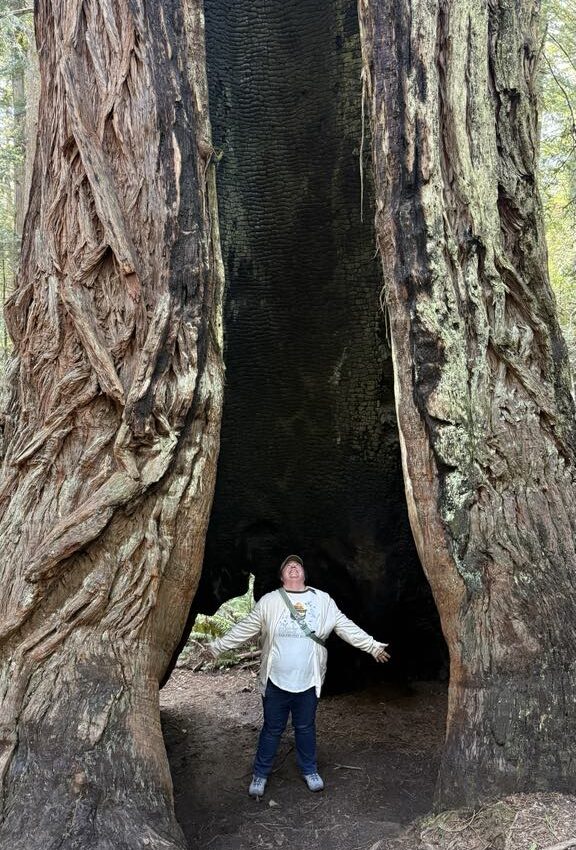As human beings, we have the unique capacity of experiencing the past and the future in the present. Our memories and fantasies allow us to view our lives as ‘snapshots’ in time. For example, all of us have heard a particular song on the radio, and wham… suddenly we are catapulted back to another place and time. This blast from the past is usually accompanied by a vivid constellation of emotions and physiological reactions (e.g., rapid heartbeat, sweaty palms, gritting teeth, laughter, tears, excitement, fear), all incredibly occurring as if they were happening today. Now…fast forward to the future, and we can fantasize about the love we have yet to meet, the job of our dreams, or our worst fear realized. This distinctive ability can manifest itself as a magnificent gift or painful curse.
For some, a loss can be so intolerable that the painful experience is buried deep into the archives of the mind, sometimes unexpectedly evoked by a particular taste, touch, sound, or smell… and sometimes never to be retrieved. For others, self-medicating is a temporary fix that serves to numb the pain. However, the emotional band-aiding can result in destructive behaviors.
If we could magically obliterate the bad times, heartaches, rejections, losses, embarrassing moments, and other undesirable aspects in our lives, it makes sense that stress, illness, damaged relationships, and violence would greatly diminish.
It’s tough being human. Yet, for better or for worse, our memories and fantasies represent profound and significant facets of who we are. They guide our behavior on both an unconscious and conscious level. Whether they represent pain or pleasure, we must embrace these snapshots in time and learn to view them as vehicles by which we can obtain a better understanding of ourselves and the way in which we interact with others.
Ultimately, it is the acceptance of “self,” and recognition of one’s strengths and limitations that proliferate successful decision-making, increases the strength of character, and improves our overall quality of life.
 Dr. Jodi J. De Luca is a Licensed Psychologist with over 15 years of experience. In addition to her private practice, Erie Colorado Counseling located in Erie, Colorado, Dr. De Luca is currently on staff at Boulder Community Hospital as a Behavioral Health Intake Evaluator in the Emergency Department, and as Co-Chair of the Disaster Response Psychological Support Team. She is also part of the American Psychological Association Disaster Response Network.
Dr. Jodi J. De Luca is a Licensed Psychologist with over 15 years of experience. In addition to her private practice, Erie Colorado Counseling located in Erie, Colorado, Dr. De Luca is currently on staff at Boulder Community Hospital as a Behavioral Health Intake Evaluator in the Emergency Department, and as Co-Chair of the Disaster Response Psychological Support Team. She is also part of the American Psychological Association Disaster Response Network.
Dr. De Luca has held clinical positions with Morton Plant Mease-Baycare Hospitals and Tampa General Hospital in Tampa Bay, Florida. Dr. De Luca has held teaching positions at Embry-Riddle Aeronautical University in Daytona Beach Florida, the University of Tampa, and Argosy University in Tampa, Florida.
Dr. De Luca attributes her personal and professional experiences as major influences toward her commitment to the Arts & Sciences, and quest toward a better understanding of human emotion and behavior. Her renowned international media related experiences and research focus on human emotion, behavior, and relationships.
Of special interest, are Dr. De Luca’s award winning photography, video documentary, Homeless: Inside America’s Minds, and her published book, Homeless in America: Portraits of an American Legacy (February, 2015). These endeavors are attempts to launch further national attention to the reality of the American Homeless population that is rapidly growing.
Dr. De Luca enjoys painting, photography, music composition, traveling, and especially hiking. She spends much of her leisure time hiking in the Colorado Rockies, and has summited Mt. Kilimanjaro in Tanzania, Africa. Dr. De Luca’s family, friends, and pets always remain her priority and touchstones in life.
Dr. De Luca’s art is visible in the pages of Black Fox Issue 13.



